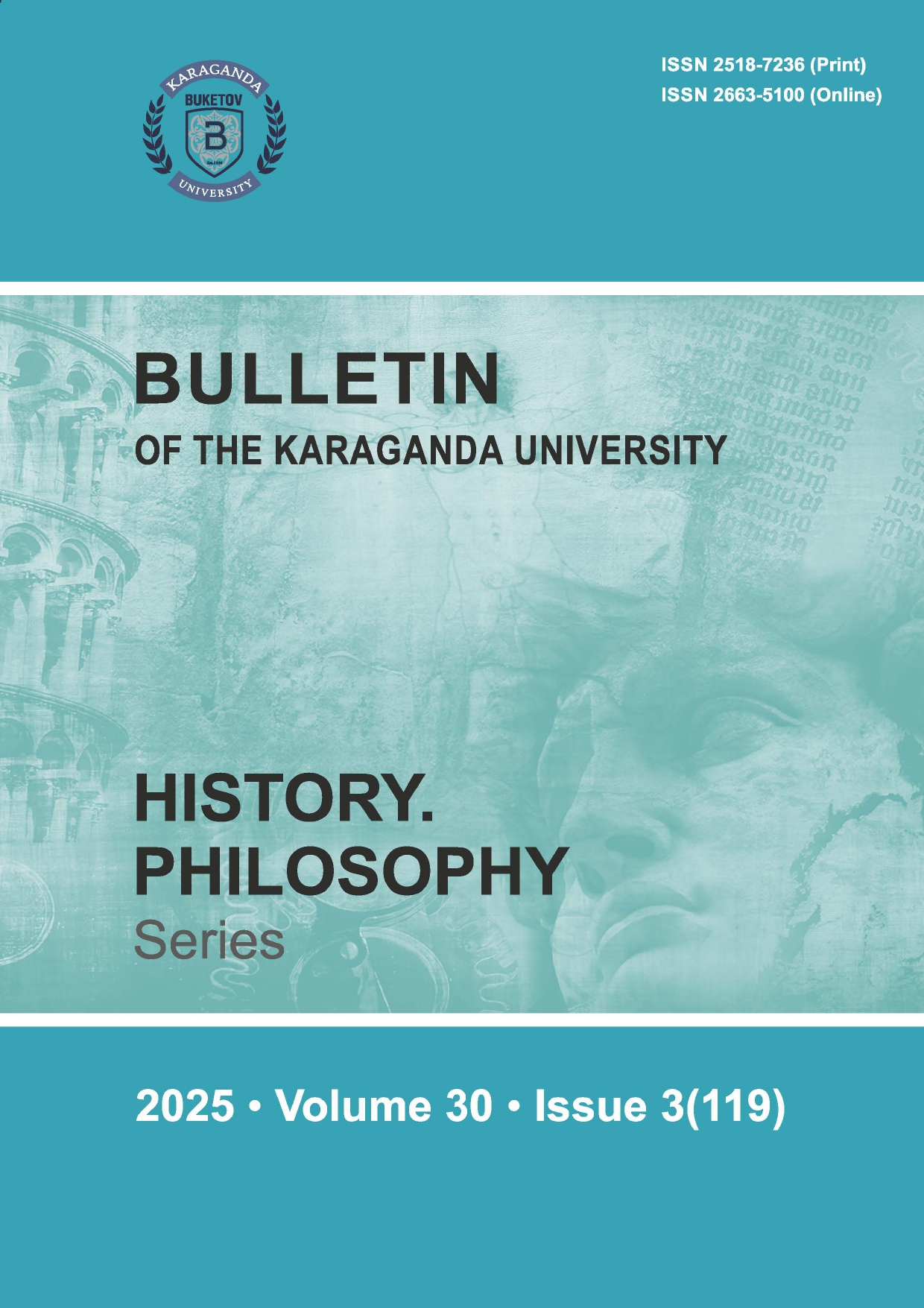The Socio-Economic Situation of the Kurdish Ethnic Group Deported to Kazakhstan in 1937–1944: Historical Analysis and Contemporary Research
DOI:
https://doi.org/10.31489/2025hph3/116-126Keywords:
Kurdish ethnic group, deportation, USSR, special settlers, national policy, socio-economic condition, Kazakhstan, ethnic minorities, adaptation, cultural identity, post-Soviet period, historical memory, Stalinism, rehabilitationAbstract
This scientific article is devoted to a comprehensive study of the socio-material condition of the Kurdish ethnic group during the Soviet and post-Soviet periods. It examines the impact of the national policy implemented by the USSR authorities on the Kurdish ethnic group, its deportation, and the peculiarities of life in Kazakhstan as special settlers. Based on historical documents, archival materials, statistical data, and scientific studies, the article assesses the socio-economic and political situation of the Kurdish ethnic group during the Soviet period. The study analyzes the USSR’s policy toward ethnic minorities, legal restrictions, and material
conditions imposed on special settlers. Additionally, it explores the economic difficulties faced by the Kurdish ethnic group during the Soviet years, their adaptation process in Kazakhstan after resettlement, and opportunities for labor integration. The post-Soviet period is examined in terms of improvements in the legal status of ethnic groups, changes in the social position of the Kurdish ethnic group, preservation of cultural identity, and integration challenges. The scientific significance of this study lies in the systematic analysis of historical data, while its practical value is in contributing to the regulation of interethnic relations and the preservation of historical memory. This research provides a deeper understanding of the development of the Kurdish ethnic group during the Soviet and post-Soviet periods, assessing its socio-material condition and identifying ways to preserve its cultural identity. Moreover, the findings serve as a basis for analyzing the migration processes of ethnic minorities, their adaptation to new environments, and mechanisms of integration into society. Historical experience also contributes to strengthening interethnic stability and improving migration policies.




